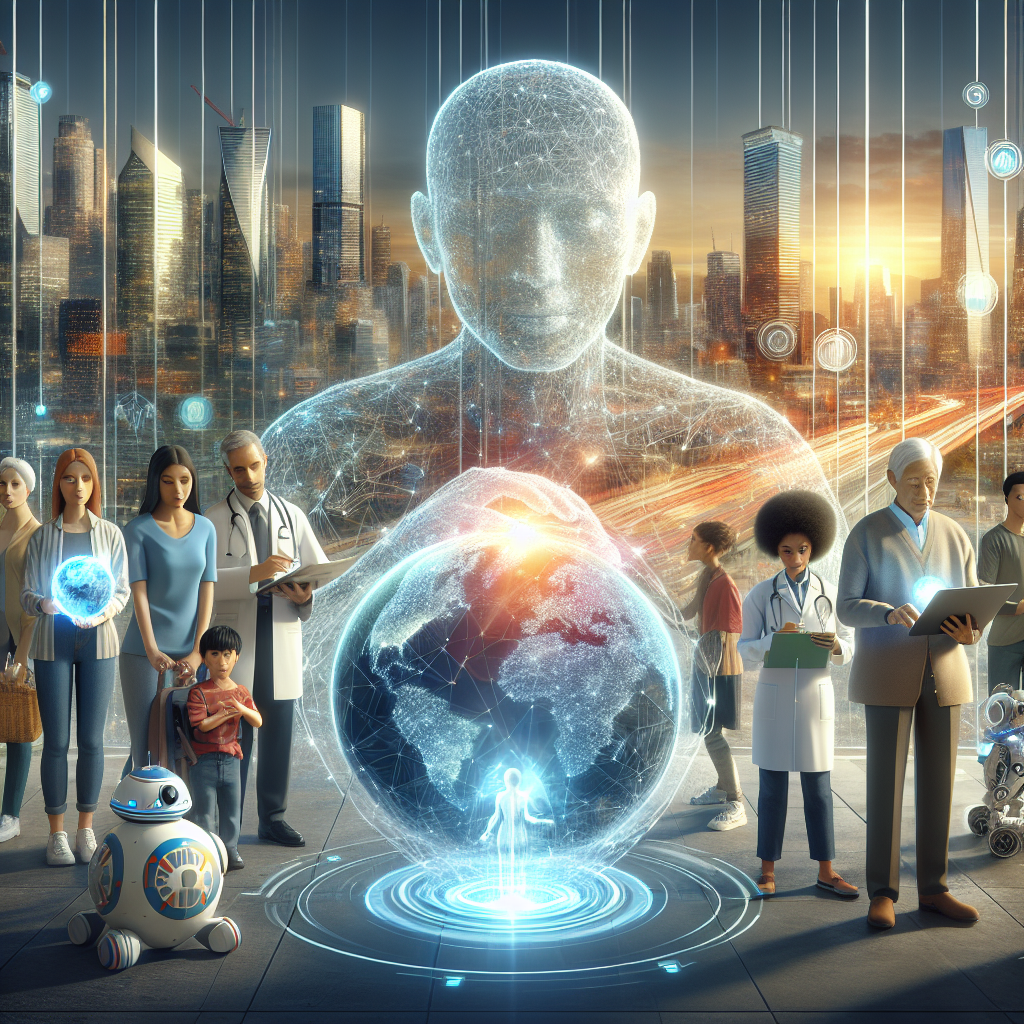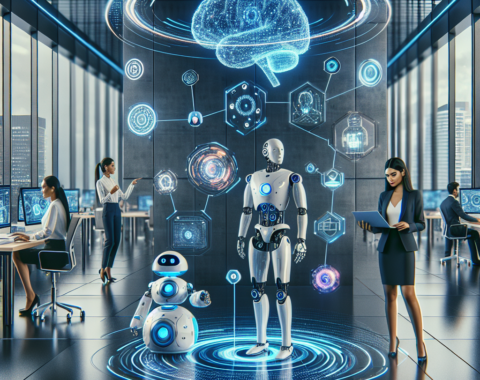
Empowering Humanity with AI: The Crucial Role of Human Oversight
In an era where artificial intelligence (AI) is rapidly advancing and reshaping every facet of human life, the dialogue around its impact on society has never been more crucial. Visionaries like Ben Goertzel argue that **AI has the potential to save humanity**, but only if it remains under human control. This assertion invites exploration into how AI can serve humanity effectively and the indispensable role of human oversight in this dynamic relationship.
The Promise of AI in Modern Society
AI stands as a transformative force, with its capacity to enhance productivity, drive innovation, and address complex challenges such as climate change, healthcare, and education. **The benefits of AI are immense**, and its applications are myriad:
– **Enhanced Efficiency**: AI automates routine tasks, freeing human resources for more creative and complex problem-solving.
– **Improved Healthcare**: From predictive analytics to personalized treatment plans, AI holds promise in revolutionizing patient care.
– **Sustainable Solutions**: In addressing global challenges like climate change, AI aids in creating sustainable strategies by optimizing resources and reducing waste.
– **Educational Advancements**: Customized learning experiences powered by AI can level the playing field, providing quality education to all demographics.
However, these advantages can only be fully realized with proactive human involvement guiding AI’s development and deployment.
Why Human Oversight is Essential
As AI systems become more sophisticated, the potential risks associated with their unchecked evolution become more pronounced. **Human oversight is paramount for several reasons**:
Ethical Considerations
AI systems operate based on the data and algorithms they are fed. Without careful monitoring, they can perpetuate biases and inequalities present in their data sources. Ethical oversight ensures that AI aligns with societal values and norms, fostering fairness and equity.
Accountability and Transparency
When AI systems make decisions, especially those affecting life and death, **transparency and accountability** are critical. Human oversight is necessary to ensure these systems do not operate in a black box but in a way that allows for understanding and regulation.
Safety and Security
As AI technology becomes integral to sectors like finance, military, and healthcare, **ensuring the safety and security of these systems** is essential. Human oversight can provide checks and balances to prevent technological malfunctions or malicious exploitation.
Strategies for Effective Human Control
Maintaining control over AI requires deliberate strategies and frameworks. **These strategies include**:
Developing Robust Ethical Guidelines
Policymakers and technologists must collaborate to create comprehensive guidelines outlining ethical AI use. These guidelines should be dynamic, adapting to evolving technologies while maintaining a strong focus on human rights and societal well-being.
Implementing Human-in-the-Loop Systems
Incorporating humans-in-the-loop is a practical way to keep AI systems in check. By ensuring that significant decisions require human input, businesses and developers can maintain control and intervention capability.
Promoting Transparency in AI Development
Openness in AI development and deployment processes helps build trust among users. Organizations should prioritize transparency by documenting and disclosing AI system mechanics, data sources, and decision criteria.
Fostering Collaboration Across Disciplines
To keep AI under human control, collaboration between technologists, ethicists, policymakers, and the general public is essential. This collective approach can help shape regulations, standards, and innovations that align with public interest and ethical considerations.
Challenges to Human Control Over AI
Despite the outlined benefits and strategies, humans face significant challenges in maintaining control over AI, such as:
Rapid Technological Advancements
AI technology is advancing at an unprecedented pace, often outstripping existing regulatory frameworks and ethical guidelines. Keeping up with such rapid developments is a monumental task for societies worldwide.
Global Disparities
Discrepancies in technological access and comprehension between nations and communities can widen the gap between those who control AI and those subject to its impacts. Ensuring equitable participation in AI developments is crucial to overcoming this barrier.
Complexity of AI Systems
The complexity of AI systems makes it difficult for individuals without technical expertise to understand their functioning, limiting the number of people qualified to oversee and regulate AI.
The Path Forward
Despite these challenges, the integration of AI into society is an inevitable trajectory. To ensure AI remains a **boon rather than a bane**, proactive human oversight must be at the forefront of its evolution. Policymakers, technologists, educators, and society must actively engage in creating an environment where AI serves humanity’s best interests.
Education and Public Awareness
Increasing public understanding of AI and its potential impacts is critical for informed dialogue and decision-making. Educational initiatives should aim at demystifying AI technology and empowering citizens to partake in discussions and policy formulations.
Regulatory Frameworks
Governments and international bodies need to develop and enforce comprehensive regulations governing AI development and use. These frameworks should be adaptable to technological changes while remaining firmly rooted in ethical principles and human values.
International Cooperation
AI is a global phenomenon requiring international cooperation to address its challenges and harness its benefits. By working together, nations can create uniform standards ensuring that AI development aligns with collective human interests.
Conclusion
In the hands of humanity, AI has the potential to be a monumental force for good. But this is only achievable if human oversight guides its path, ensuring ethical standards, safety, and alignment with societal goals. By implementing effective control strategies and embracing a collaborative approach, we can harness AI’s **transformative potential** while safeguarding our shared future. As Ben Goertzel suggests, the key to AI saving humanity lies in our ability to wield it wisely and responsibly.




